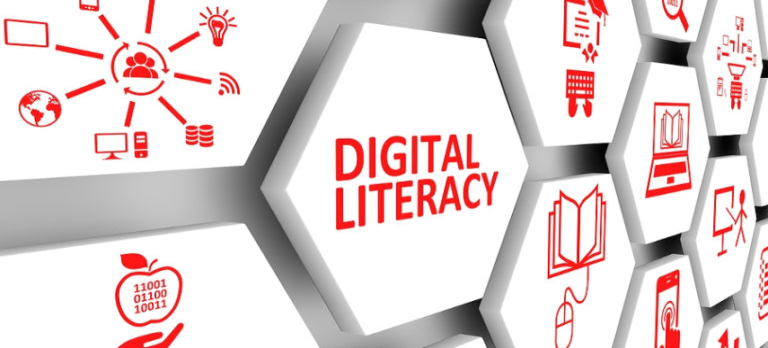Across government, agencies are focused on becoming more data-driven, using the vast troves of data they hold to make more informed decisions that have an immediate impact on citizens. The growing use of artificial intelligence (AI) to accomplish this is accelerating and expanding the need for organization-wide data literacy, the ability to interpret, analyze, and leverage data for work. AI is great at parsing through vast amounts of data, but if that data is inaccurate, irrelevant, or incomplete, it can present outputs that lead to flawed decisions that have real-world consequences for citizens depending on social services or being processed by the criminal justice system.
Data is Everyone’s Job
The need to understand data and how to use it now extends beyond the confines of IT and data-science roles. Data literacy is critical at every level of an organization. Agencies are facing a huge culture shift as they work to show employees how much of their daily work involves understanding and using data. Putting time into a timesheet system, transcribing data into a digital system, looking up an answer to a citizen inquiry, analyzing a policy—these are all data-driven tasks. If the person completing them does not fully grasp how that data will be used or how it was collected, the impact of that data will be affected.
Data literacy starts with reading comprehension—understanding the information you need to consume. With that understanding, employees have to learn how to creatively use that data to solve issues and communicate with stakeholders. Of course, the level of needed data knowledge will vary according to the role. Data users can be divided into two basic types – information producers and information consumers. Information producers are employees, such as IT professionals and data analysts, who collect raw data, clean and transform it, and then interpret the data through statistical analysis. Information consumers are business unit staff, program managers, and leaders who take the data prepared by information producers and use it for business decisions. Building the skills of data consumers is becoming increasingly important for mission success.
Prioritizing Training
The National Association of State Chief Information Officers (NASCIO) found that while states report increasing importance placed on the quality of their data, only 16% of the states have formal data literacy programs. Agencies at all levels of government need to prioritize data literacy training for employees. With data literacy, staff are:
- less likely to click on malicious email links that introduce malware into networks
- able to evaluate the validity of survey data by checking the sample size, the date of the research, the funding source, and the logic of the baselines
- able to understand the difference between correlation and causation
- able to recognize biases
With the right training, all employees can achieve this level of informed data use. Effective training is happening across all levels of government, including:
- Data Skills for Congress program – this course, offered to dozens of congressional staffers from key offices across Capitol Hill, is designed to both educate participants in data literacy and inform them on how data is being used by agencies to help shape policies around data use.
- State of Indiana Data Proficiency Program – this course has educated over 1,800 state employees utilizing the state’s Data Hub to allow employees to work with data they might use at work as part of their education. Indiana leaders reported that utilizing the phrase “proficiency” vs. “literacy” encouraged more employees to engage in the voluntary program.
For more ideas on how to implement data literacy training and practices in your organization, check out these resources from GovWhitePapers and GovEvents.
- Government’s Evolving Role in Digital Transformation (white paper) – The federal government’s role in driving digital transformation is ever-evolving as technology rapidly accelerates. In a recent roundtable discussion, federal IT experts discussed the complex challenges and opportunities surrounding digital transformation in government.
- Work, Workforce, Workers: Reinvented in the Age of Generative AI (white paper) – The impact and importance of what people do with generative artificial intelligence today and tomorrow cannot be understated. Due to its ubiquity across job types and potential to create exponential impact, generative AI is poised to provide the most significant economic uplift and change to work since the agricultural and industrial revolutions.
- 2024 Government AI Trends to Watch (white paper) – This report discusses use cases among federal agencies, AI standards in government, the introduction of generative AI, and the empowerment of the workforce behind AI.
- The Power of Data Storytelling in the Realm of Generative AI (May 29, 2024; webcast) – Data storytelling has emerged as one of the trendiest topics in analytics, business intelligence, and data science, especially with generative AI. Yet, there is still a disconnect between data scientists, data analysts, and the rest of the business when data modeling outputs need to be translated into business decisions.
- Data Governance & Information Quality Conference (DGIQ) West (June 3-7, 2024; San Diego, CA) – Whether you are a newcomer or an experienced data professional, DGIQ offers a compelling agenda full of informative sessions and tutorials for all levels of experience.
- Unlocking the Potential of AI & Data Science to Transform Government (June 25, 2024; webcast) – The US government has initiated various AI/ML programs, emphasizing the strategic importance of customer experience. The adoption of AI doesn’t come without challenges, however. There are ethical concerns, cybersecurity risks, and considerations around workforce development and public trust.
Find more details on building digital literacy in government on GovWhitePapers and GovEvents.










